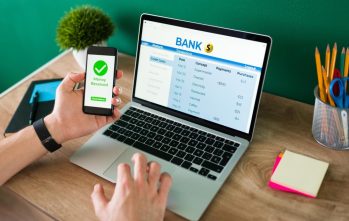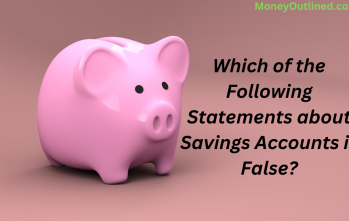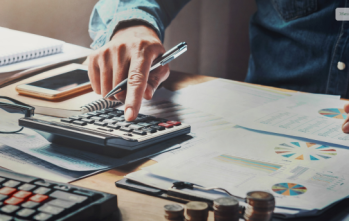Table Of Contents
- Safety Features Of Cash App
- 10 Cash App Scams You Must Be Aware Of
- Pretending To Be Cash App Support
- Offering Costly Products
- Random Deposits
- Claim Your Price
- SSN Request
- Government Relief Payments
- Bad Romance
- Cash Flippers
- Fake Refunds
- #CashAppFridays
- Frequently Asked Questions!! (FAQs)
- The Bottom Line
- Safety Features Of Cash App
- 10 Cash App Scams You Must Be Aware Of
- Pretending To Be Cash App Support
- Offering Costly Products
- Random Deposits
- Claim Your Price
- SSN Request
- Government Relief Payments
- Bad Romance
- Cash Flippers
- Fake Refunds
- #CashAppFridays
- Frequently Asked Questions!! (FAQs)
- The Bottom Line
Beware Of The Top 10 Cash App Scams That Can Empty Your Bank Account!
Whether you are splitting your bill after a night out or sending money for your sister?s graduation, Americans are getting more and more reliable on payment service applications like Cash App more than ever. It is an easy and smooth way to transfer money and is trusted by millions of users. Cash App makes sending and receiving money a lot easier. It is also trendy for being convenient. While the Cash App in itself is safe, there are high chances of cash app scams.
Yes, you heard that right. Every money transaction app is subject to scams, and so is the
Cash App. However, if you are just rightly aware and take the correct measures, you may as well avoid these Cash App scams and carry on with a seamless money transfer journey.
So, without any further delay, let us begin!
Safety Features Of Cash App
Because Cash App scams are growing a lot, here are some of the safety features the app offers to its users to protect them from scammers.
- Encryption
- Notifications
- Security Lock
- Remote Disabling
- Fraud Protection
10 Cash App Scams You Must Be Aware Of
Here are some of the most common Cash App scams that users have mainly complained of.
Pretending To Be Cash App Support
Cash App scammers generally take advantage of the users by pretending to be Cash App supporters or other employees of Cash App. This gives users a false idea of legitimacy as the scammers reach out to them through phone or direct messages.
Cash App, however, states,
?Cash App Support will never ask you to provide your sign-in code or PIN, and will never require you to send a payment, make a purchase, download any application for ?remote access,? or complete a ?test? transaction of any kind.?
The odds are, if someone from Cash App calls you to ask about your bank balance or how you use it, it is most probably a scammer. If you want to check any details about your Cash App account, do not respond to these calls or messages. Cash App suggests that you should visit their official website or their app if you want to fetch account details.
Offering Costly Products
This is one of the most popular scams on Cash App. This is where the scammers offer expensive but non-existing products or services in return for payments. Cash App is not a marketplace, and it does not exercise any purchase or trading of personal items.
If an unknown person suddenly offers you concert tickets, pricy electronics, or any such expensive goods in exchange for a Cash App transaction, it is highly possible that they might take your money and vanish without even giving you the products you paid for.
Random Deposits
A random deposit that you were not even expecting may sound exciting. Who does not like free money? Unfortunately, if you receive a random deposit in your Cash App, it indicates an impending scam.
Scammers use random deposits to attract users into a sense of trust with the scammers. After all, if someone is depositing $1,000 in your account, they can?t be a scammer. However, Cash App has an explanation for this too. They say that scammers may sometimes accidentally send you money, which they later ask you to return. When you send them the funds back, they will dispute the payment with both their credit cards and banks, and hence, they will get reimbursements from both their bank and you.
Claim Your Price
Scammers may contact you with claims of excellent cash prizes. But, if you want to avail these prizes, you will have to first send them money. Cash App does not require any of its users to pay for any promotions or contests; therefore, any request to send funds to claim prizes might as well be fraudulent.
SSN Request
If anyone is asking you for your Social Security Number, then it is most likely a scammer. Generally, sharing your Social Security Number with your trusted sources is preferable. You must avoid sharing vital identity information with anyone in regard to any app, including Cash App.
Government Relief Payments
Some scammers go to the extent of offering the promise of cash in the form of relief programs or government grants. Cash App scams of this type have been quite frequent since the beginning of the COVID-19 pandemic and look pretty genuine, depending on what skills the scammer has.
Bad Romance
If someone is reaching out to you through the Cash App with a promise to fix romantic or expensive dates or lavish gifts, it is most probably a scam. Additionally, if you are matching with someone on a dating profile or social media, and they are asking you to send them funds through Cash App, you must exercise the same caution. If someone you have never met is asking you to send money through Cash App while promising a romantic gesture, you must treat them with similar suspicions.
Cash Flippers
If you have heard about property flippers, you would easily understand what cash flippers are. Scammers will approach you with claims that they will be able to ?flip? the money to help users make more money.
Scammers who flip cash will ask for fewer funds, something around $5 to $ 10, which they will claim to flip multiple times of the fund.
Cash flipping is also known as ?money circle.? It is a scam designed to take users? funds without giving them anything in return on their investment. As a rule, if anyone is making a financial promise and asking you to send through funds, it is most probably a scam.
Fake Refunds
This is one of the most common types of scams that online businesses are the victims of. Scammers approach businesses online to show their interest in a product and will make a Cash App payment, except the money will never go through. They will claim to have made the payment several times. They will ask for a refund of your own money for the item which they never really paid for, to begin with.
#CashAppFridays
Cash App runs a real cash giveaway known as the #CashAppFridays. Even this could not stop the scammers from taking advantage. Fake Cash App profiles use this hashtag and try to contact users, claiming they have won the giveaway. However, this is where things flip.
If users want to claim the giveaway, they will have to provide the scammers with a payment or their login information. Cash App will never ask winners for payment or credentials.
Frequently Asked Questions!! (FAQs)
Ans. This is most certainly a scam. Do not respond to the calls or messages that scammers will send you to send back the money. It is one of the most common Cash App Scams.
Ans. If you meet someone you don?t know on Facebook and they ask you to send them money, it is most likely a scam.
Ans. No, Cash App will not take responsibility for scams performed under their name. You have to be careful enough not to fall for such fraudulent activities.
The Bottom Line
With the growing popularity of online payment, scams are widespread. Cash App scams are more common than you may think. With the crime rate going up, scamming is not holding onto the back seat either.
Therefore, both Cash App and the law ask customers to be a lot more cautious and think twice before randomly giving away their credentials or making unauthentic payments.
Continue Reading:











Leave A Comment